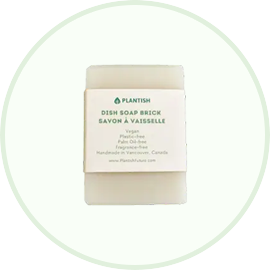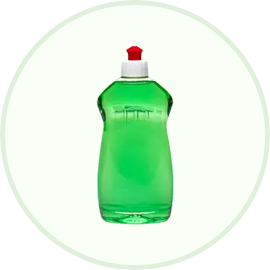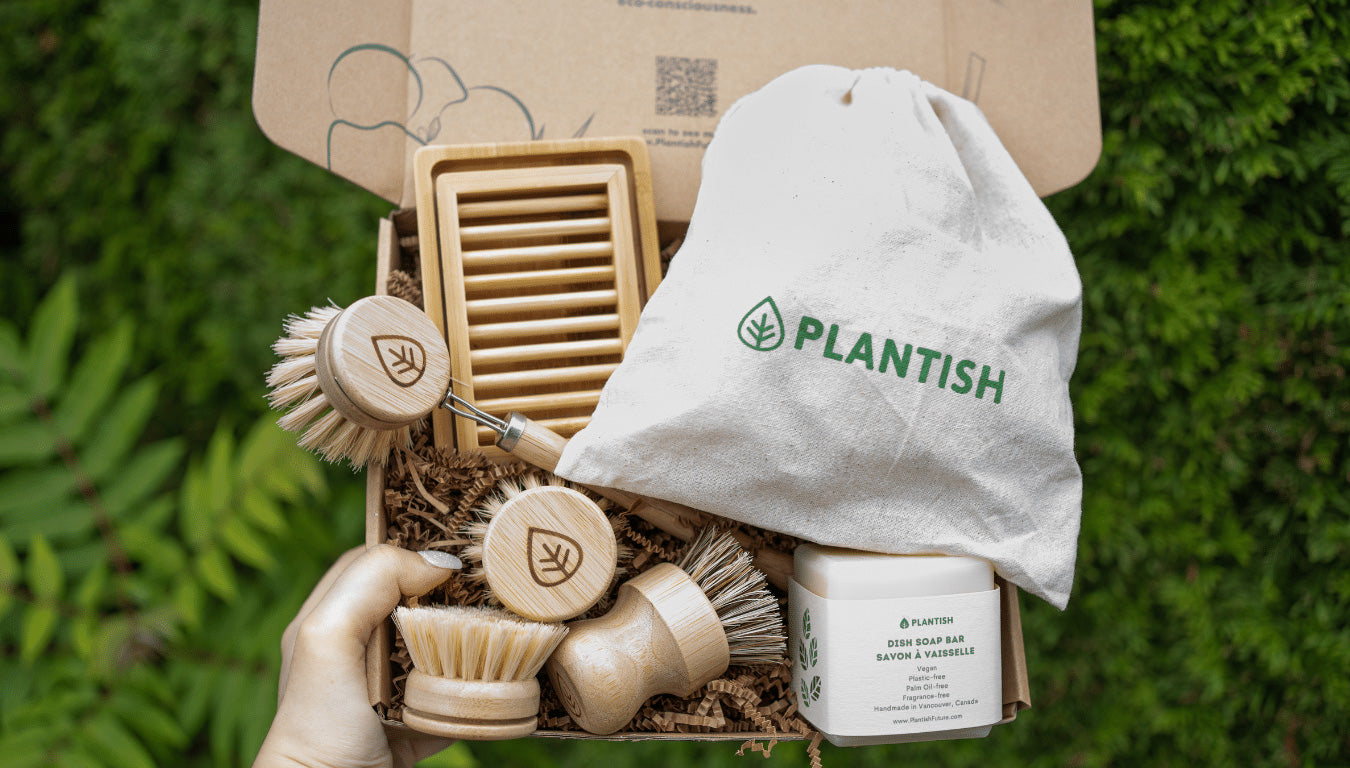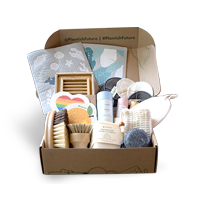Dish Soap Cake - Now Pop Up
![]()
Volume: 7.5oz
- simple ingredients: made from four simple plant-based ingredients
- handmade: four ingredients only, no additives, preservatives
- fragrance-free: non-irritating on the skin
-
coconut oil (sodium cocoate) - creates hard soap bars with fluffy, stable lather
- castor oil (sodium castorate) - makes soap antimicrobial and moisturizing on the hands
- citric acid - dissolves mineral deposit, stains and soap scum
- lye (sodium hydroxide) - an alkali that is required for soap making and is eliminated in the saponification process
- before using, test on a small area of skin. discontinue use if irritation occurs
- as a dish soap: rub a wet cloth, sponge or dish brush directly on the soap. scrub dishes, then rinse with water
- as stain remover: rub soap on stained spots, add water and rub fabric between hands, then hand wash or launder
- pat to dry before storing
- flip the tin to remove excess water or moisture
- keep the soap dry in between uses
- Not for consumption
- Now Pop Up is a creative company that produces sustainable cleaning supplies. they make eco-friendly sponges, scourers and more from materials like vegetable fibres as alternatives to plastic. Now Pop Up's goal is spreading smiles while caring for the planet through sustainable pops of colour, character and joy
![]()
Volume: 7.5oz
-
- Features
- Ingredients
- Directions
- Care Tips
- Allergies & Cautions
- What is Now Pop Up?
- Do you offer free shipping?
- Where do you ship to?
- simple ingredients: made from four simple plant-based ingredients
- handmade: four ingredients only, no additives, preservatives
- fragrance-free: non-irritating on the skin
-
coconut oil (sodium cocoate) - creates hard soap bars with fluffy, stable lather
- castor oil (sodium castorate) - makes soap antimicrobial and moisturizing on the hands
- citric acid - dissolves mineral deposit, stains and soap scum
- lye (sodium hydroxide) - an alkali that is required for soap making and is eliminated in the saponification process
- before using, test on a small area of skin. discontinue use if irritation occurs
- as a dish soap: rub a wet cloth, sponge or dish brush directly on the soap. scrub dishes, then rinse with water
- as stain remover: rub soap on stained spots, add water and rub fabric between hands, then hand wash or launder
- pat to dry before storing
- flip the tin to remove excess water or moisture
- keep the soap dry in between uses
- Not for consumption
- Now Pop Up is a creative company that produces sustainable cleaning supplies. they make eco-friendly sponges, scourers and more from materials like vegetable fibres as alternatives to plastic. Now Pop Up's goal is spreading smiles while caring for the planet through sustainable pops of colour, character and joy
Free Shipping over CA$50/US$35.
Plantish only ships to USA and Canada right now; however, we hope to ship internationally in the future.
More details available on Shipping Policy.
Why it's Better Than
Plastic Sponges
Get smelly and slimy over time. Mold grows inside where you can't see.
The Pop Up Sponge dries quickly & stays fresh thanks to its collapsible design.
Microfibre Cloths
Can still hold onto dirt & bacteria even after washing.
The Pop Up Sponge's scrubbing texture lifts away dirt better than a cloth. Just rinse and it's ready for the next task!
Synthetic Scrubbing Pads
Can be too harsh on surfaces and don't wash clean easily.
The Pop Up Sponge is gentle enough for any surface while still providing a good scrub.
Paper Towels
Wasteful and expensive to use for every cleaning job.
The eco-friendly Pop Up Sponge is reusable, saving money and resources versus disposable paper towels.
CUTTING PLASTIC OUT OF THE KITCHEN
Studies have found that many of our liquid dish soaps contain chemicals that are toxic to our wildlife, especially the aquatic community. Not to mention the plastic and excess water, making the switch to a plant-based bar is both better for our environment and your wallet!

Natural vs Plastic
Make the switch

1
Plant-Based & Vegan
Made with only 4 simple but powerful plant-based ingredients
2
Gentle on Hands, Tough on Grease
Lathers well but doesn't strip the moisture off your hands
3
Plastic-Free & Affordable
Highly concentrated, replacing up to 5 plastic bottles of liquid soap
1
Made with Chemicals and Toxins
Toxins go straight into sewage systems, lakes, and oceans that can affect wildlife
2
Treated with Chemicals
Harsh on our hands and can cause allergic reactions or serious long-term conditions
3
Excessive Plastic & Water
Unnecessary plastic and excess water, taking up space in transit

FIND YOUR PERFECT PAIRS










